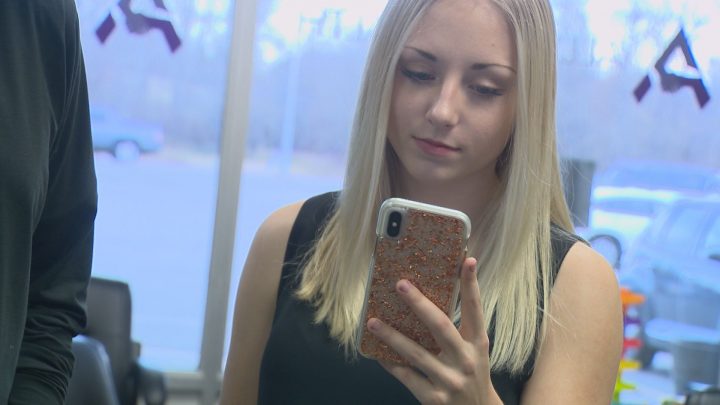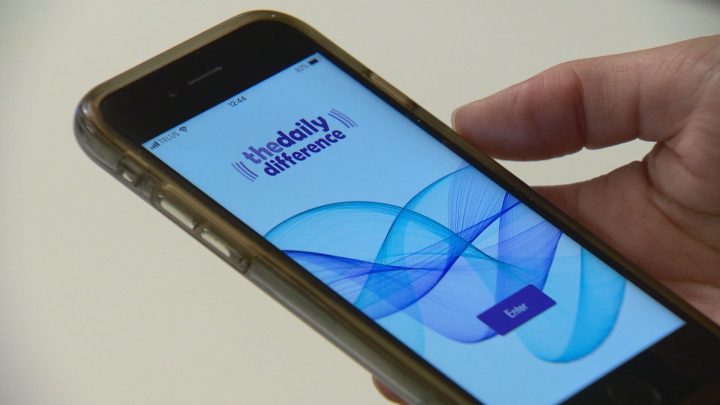Kelli Lemstra says the bullying began in Grade 2.

“I was struggling with the relationships with a lot of my friends,” she said. “It got really hard when everyone started getting cell phones which was in Grade 7 and 8.”
That’s when the 16-year-old said things became unbearable.
“(People) were texting me awful things, commenting on all of my social media, making rude accounts about me, calling me on my phone on unknown caller telling me to kill myself,” she said.
With what Kelli thought was a lack of support from her school, and no way to make the bullying stop, the teen and her parents didn’t know where to turn.
“Most fathers would agree that your first job is to keep your kid safe,” Kelli’s dad Mark Lemstra said. “When you can’t keep your kid safe you don’t feel like much of a father.”
He said Kelli would get up to 200 texts per day from people telling her to harm herself.
“There’s a coping part for being a father as well,” Mark said. “I think you’d prefer that this happens to you than to your daughter. The tricky part is there’s not really any way to make it stop.”
In Grade 9, on a particularly bad day at school, she begged her dad to pick her up.

Get weekly health news
“I’m crying at school, I can’t get through my classes, I can’t focus on my work,” Kelli said.
That’s when she thought of the idea for a mental health app.
“I wanted to help people and I knew people suffering the same things I was suffering with was really important to me,” she said.
The app, called “The Daily Difference”, took more than a year to develop and includes eight self-help modules with tips on how to cope with things like anxiety and depression. There’s a section for journaling, relaxation videos and has ideas for ways to pay it forward.
“Her idea was that it needs to be kid friendly,” Mark said. “A whole team of people was looking at it to make sure that not only was it clinically warranted, but it was youth friendly.”
One of those team members is registered social worker, Kayla Stefan, who worked closely with Kelli to help make her vision a reality. She said the app is another avenue for kids to access mental health or bullying support.
“Sometimes kids don’t feel comfortable receiving that one-to-one counseling support with psychologists or social workers,” Stefan said. “It’s just a way that they can access support, feel safe and comfortable.”
She added it can be scary for kids to reach out for support.
“You don’t know if you’re going to be shut down or if they’re going to be able to help or if the problem is going to get worse.”
Kelli admitted the bullying hasn’t completely subsided, but she is doing better and credits the app with helping her cope.
“I’ve definitely learned how to deal with the negativity,” she said.
Mark said he noticed over the last year his daughter has been more open about bullying and how to handle it.
“I think the last three to four days have been the best mental health state I’ve seen her be in four to five years,” he said.
Kelli’s hope is that others learn to develop the same outlook she has now.
“It’s not your fault somebody’s bullying you,” she said.
“Their actions don’t define you, it defines who they are.”




Comments